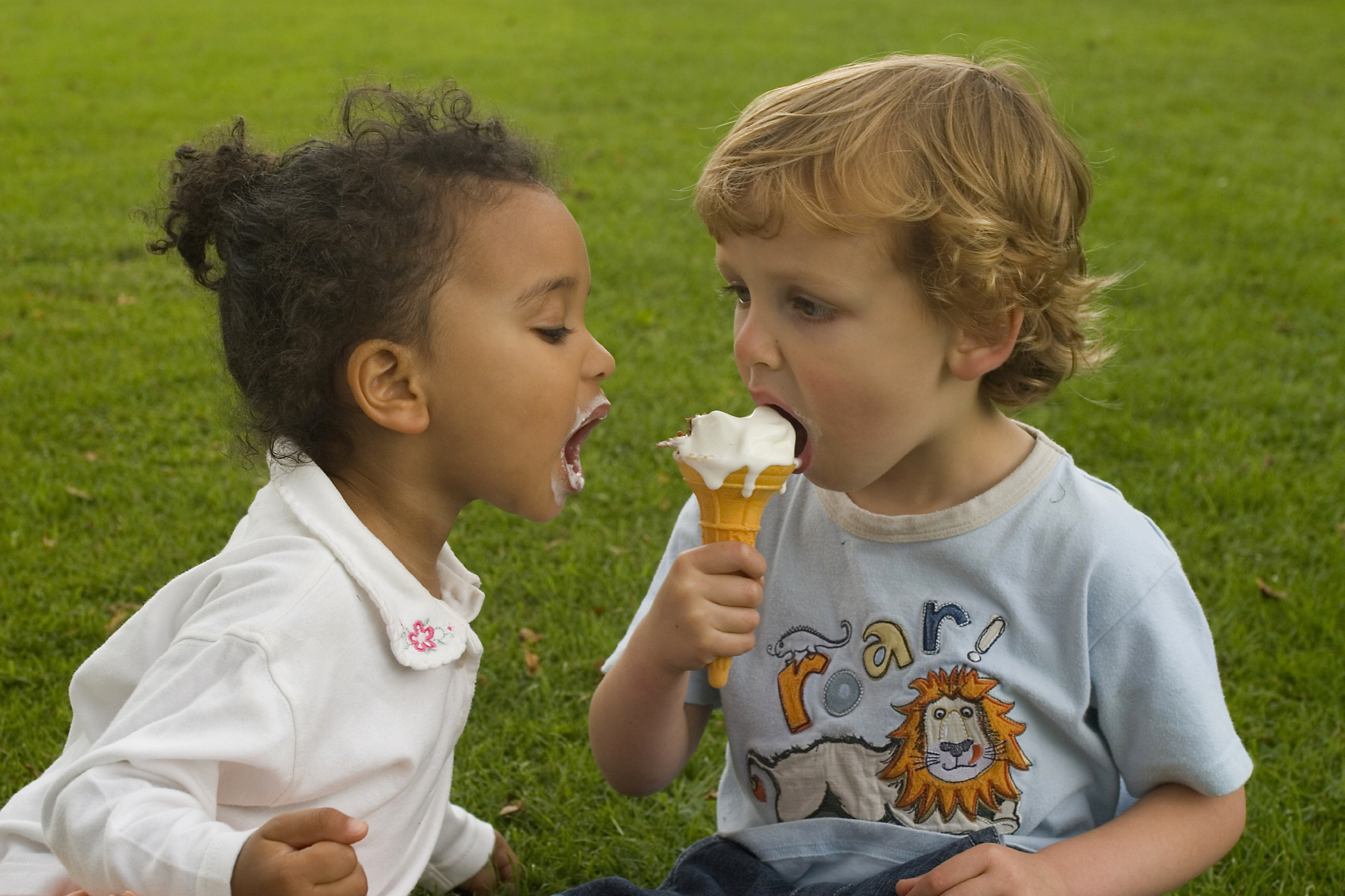
But forcing someone to be generous just makes him resentful. Worse yet, it internalizes the sense that he must be a very bad boy indeed if he doesn’t want to share like a good boy. (For a insightful description of how being guilted into generosity can undermine self esteem, check out how young Laura is taught to share -- and feel bad about herself -- in the Laura Ingalls Wilder books.)
Nancy Eisenberg, a leading researcher on children’s social development, says that children become more generous by having the experience of giving to others and learning how good that feels. There is a catch, though, says Eisenberg. The experience must be voluntarily chosen by the child. If we force children to share, they walk away feeling resentful, not generous. Not surprisingly, they’re less likely to share after that.
So generosity starts with a feeling of having plenty, and develops as we have experiences of making others happy by giving to them. Our job as parents is to help our kids to have those experiences. Here's how.
1. Model generosity.
Give to the homeless person, bake pies for the elderly at Thanksgiving. Share your ice cream with your toddler. Donate to a worthy cause in honor of a special occasion. Make giving a part of your daily life.
2. Make sure your child's normal needs to be seen, appreciated, and adored are met.
We can only give when we feel full inside.
3. Give your child the opportunity to experience how his actions can create joy in others.
This usually begins with parents. You give your child the gift of seeing you respond to a gift of his – such as a card he’s made you – by letting him see the tears in your eyes as you read it.
4. Don’t force them to share before they’re ready.
Insisting that a two year old share before she’s ready is likely to backfire. My friend John points out that asking his two year old daughter to share her favorite toys is like asking him to share his treasured violin with friends who visit. Be particularly careful about insisting that siblings share, which can undermine their relationship. For more on Sharing, see Teaching Kids To Share.
5. Every child deserves the pleasure of giving her own money to a worthy cause.
Try giving a little extra weekly allowance that goes in a special "charity" jar, and letting her give it away every year on her birthday.
6. Have a Charity night.
You could call it something with more resonance for your kids, like Gift for the World Night, or Tzedakah Night (the Jewish equivalent that means restoring Justice). Let your kids make a “Wish List” of all the ways they’d like to make the world a better place. Then let each person in the family choose one thing to do to address one of those issues. For instance, you might make a donation to Hurricane Relief, plan to volunteer at a soup kitchen together, and make a commitment to reduce your carbon emissions by buying more efficient light bulbs.
7. Volunteer as a family.
My kids and I volunteered at a local soup kitchen, and my kids loved feeling like they were making a difference in the lives of the folks they served. It also helped them feel better when they saw a homeless person, to know that person could go get a hot meal at “our” soup kitchen. What can kids do? Sort food at a food bank. Help you deliver Meals on Wheels. Organize a book drive and ship the books off to Reader to Reader.
8. Start while your kids are young, so your kids take community involvement for granted.
As they get into their teen years, they’ll find worthy causes of their own.
9. Share the idea that giving to others is one of the reasons we're alive.
And one of the ways we can all make the world a better place.
Eventually, if your child is lucky, she will learn from experience that making someone else happy by giving to them is truly more rewarding to her than receiving a gift herself.





